11 Ways You Will Be Hit by a Recession
The market crashed, and you will be hit by a recession before you know it. What should you expect?
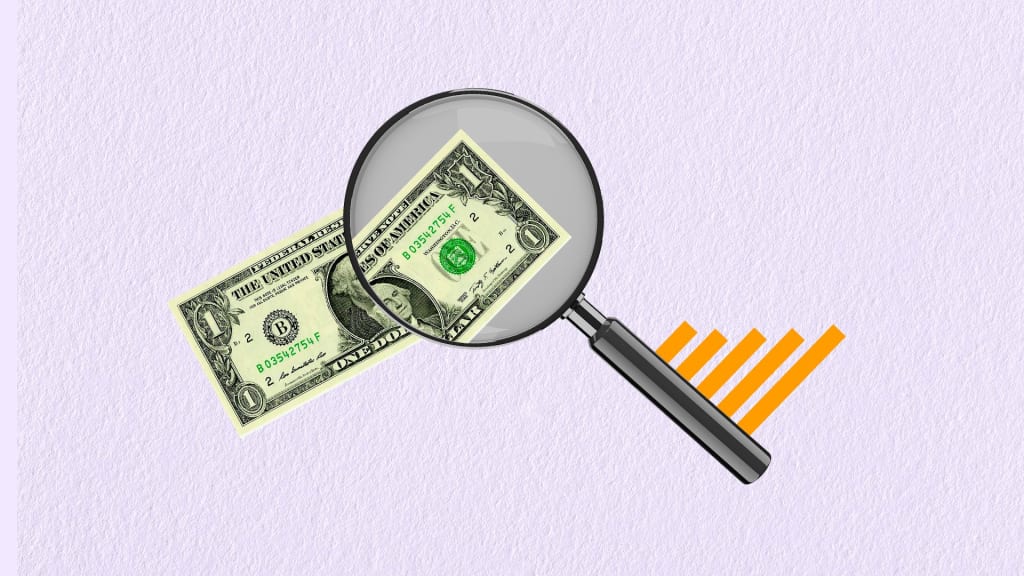
When I was first out of college, I found myself in the middle of the Great Recession. Jobs were scarce, college grads struggled, and dropouts like myself found themselves cornered. It was a brutal time in my life that involved me sleeping in my car.
Back during that recession, I was still young. I didn't understand what a recession was or what it was doing to my career. Honestly, I just thought I was a failure.
As I got older, I realized that everyone gets impacted by a recession—and that knowing what to expect can help you survive the storm better than ever. Even if you are a trust fund kiddie, you will be hit by a recession.
Now that the warning signs are here and a trade war is in full swing, it's time to be prepared for the next recession. Here's what to expect, speaking from the viewpoint of someone who's studied it at length and survived it.
Your stock portfolio will take a plunge regardless of what you invest in.

The most obvious way you will be hit by a recession can be seen in your stock portfolio. Even if you have the most conservative portfolio out there, chances are high that you will see your investments drop in value—and that's to be expected.
When a recession hits, the stock market suffers pretty terribly. It is a near-universal plunge. You can't control this, and it's terrifying. However, you shouldn't panic sell.
Your best bet is to wait things out. Don't sell your stocks at a loss! Stock market gurus prepare for a recession by understanding that it's far wiser to wait awhile and buy up good stocks at a lower price. When the economy rises once more, your stocks will most likely give you better returns.
You might get laid off.
Recessions are pretty brutal when it comes to the job market, and most companies that can't seem to make their businesses grow well will start to cut corners. The most common ways that businesses cut corners is to lay off people, outsource, or automate workers.
This is what happened during the last Great Recession. Companies weren't making profits, so they wouldn't hire anyone. They hoped to get better via downsizing, though that doesn't always work.
If you're worried about a recession, it's best to start stocking up on savings and looking for a side gig. They may be what carries you in between jobs, especially when unemployment runs out.
Home prices might fall, while rent might rise.
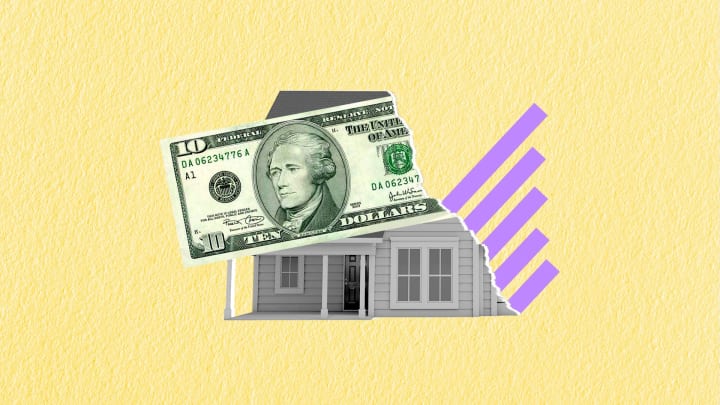
Buying a home during a recession is difficult, especially if you're not able to get financing very easily. Since most people's jobs become unstable during a recession, banks tend to tighten up their lending qualifications during these times.
This makes it harder to buy a home. With less buyers on the market, homes become cheaper. Some may even have to short-sell their homes to avoid foreclosure.
Because many people end up moving from houses into apartments, it's not uncommon for rent prices to rise in desirable neighborhoods. In most areas, rents tend to stay at least somewhat stable.
Needless to say, this is a decent time for real estate investors, as well as REIT lovers.
Prices may start to fall on luxury goods.
Recessions do not hit people evenly across the boards. Certain demographics tend to get harmed more than others. The rich and the educated are usually the ones who survive best, while the poor tend to suffer the most.
With last recession, the price of many luxury goods and pricey "middle class" brands started to fall pretty significantly. Why? Because the demographics who bought them the most could no longer afford them on their tight budgets.
Last recession, the unemployment rate topped around 10 percent—but that statistic only covers a small sliver of the story. Underemployment hovered around 25 percent, and many more just saw a major dock in pay.
The job losses didn't hit Americans evenly. One of the lesser-known facts about the recession is that college-educated people still retained a very low unemployment rate of 3 percent. Those who didn't have a degree had an unemployment rate in the teens.
If you don't have a degree, or at least some form of certification, a recession will hit you harder. Worried that you will be hit by a recession a little too hard? Go on Udemy, learn a programming skill, and get certified fast. Netsec jobs survive well in recessions.
The stocks that get the least amount of damage are the ones that will be "daily necessities."
If you have been buying up stocks in companies like Ferrari or similarly luxe items, you need to rethink those choices. You will be hit by a recession pretty hard if you have a stock portfolio that's filled with luxuries.
You would be wise to get more conservative companies during a recession, such as Walmart or McDonald's. A wise (and very wealthy) investor once said, "When the going gets tough, the tough buy Kraft." Follow suit, my friend, and you will be traveling among the ways investors deal with market volatility.
The gig economy strengthens.
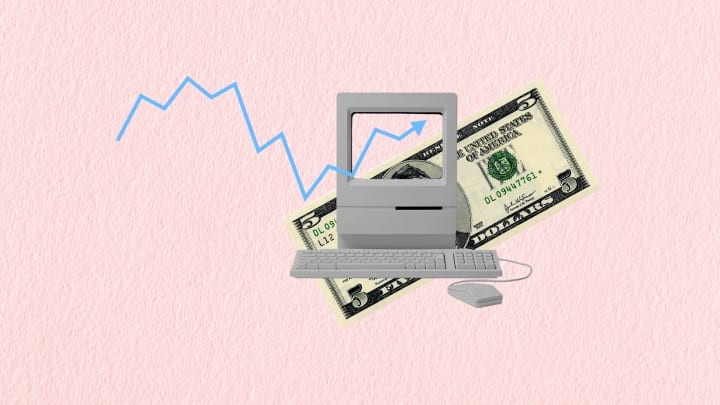
The problem with recessions is that companies generally do not want to hire people full time. When this happens, people start to order "gigs" to get the work they need done without paying a high end, premium salary to do so.
If you remember from the days of the Great Recession, the gig economy was what ended up sparking growth once more. This time around, you can expect more people to rely on gigs for growth.
You'll feel pressure to stop investing.
Investing is always a great idea, even during a recession. However, most people will see their losses from the crash and immediately decide against investing any more. Or, they'll stop investing until after the recession has ended.
This sounds like a good idea at face value, but it's not. When you bend to the pressure that urges you to stop investing, you end up losing out on the ability to make amazing returns.
Getting a loan will be harder, and your interest rates may increase.
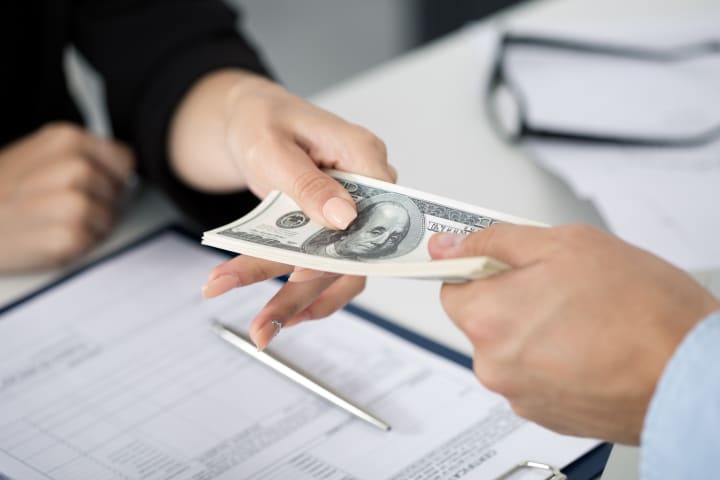
Banks and lenders of all sorts tend to tighten up their belts, and this means that being able to borrow money won't be too easy. In fact, those who have a high amount of credit card debt may want to start paying it off.
Creditors and lenders both tend to raise interest rates during a recession. This means that paying off the debt you already owe can become more difficult. If you want to invest in your future, paying down debt before a recession hits is a wise choice.
Starting a business won't be easy, either.
Did you ever have an idea for a business that you've been considering getting funding for? If so, you may want to get a loan before a recession hits.
Banks and lenders get extremely strict during recessions, and rightfully so. The chances of people defaulting on loans skyrockets, which causes banks to suffer higher loss rates.
Banks are really only protecting their backs when they do this. Unfortunately, that tends to mean that people who are relying on bank business funding will not get the money they need for their companies to stay afloat.
You will find people who get burnt out.
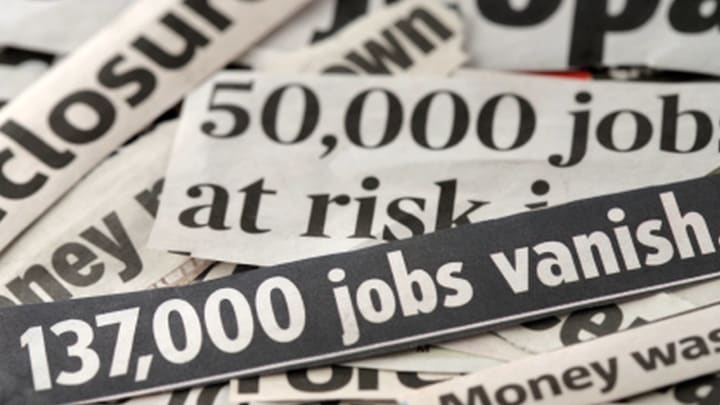
With every recession will come people who, for one reason or another, just can't keep it up anymore. In most cases, they either suffered extreme losses in the market or just couldn't find employment after a major layoff.
Whatever the reason may be, they just didn't get through the recession too well. They serve as excellent warnings of what can happen when you don't prepare.
These guys are proof that an ounce of prevention is always worth a pound of cure. Sure, you will be hit by a recession and all the baggage that comes with it. However, if you prepare, you won't get annihilated by it.
About the Creator
Cato Conroy
Cato Conroy is a Manhattan-based writer who yearns for a better world. He loves to write about politics, news reports, and interesting innovations that will impact the way we live.






Comments
There are no comments for this story
Be the first to respond and start the conversation.